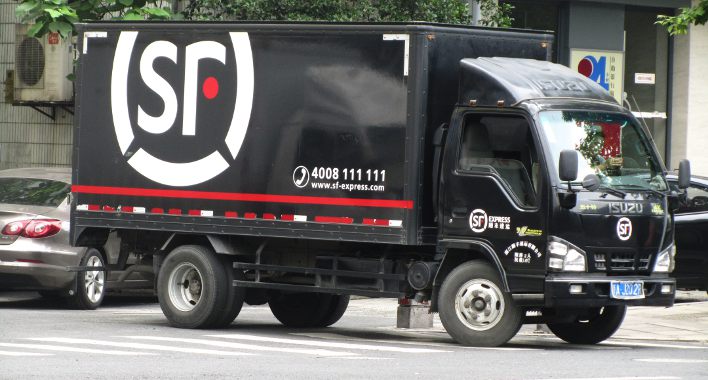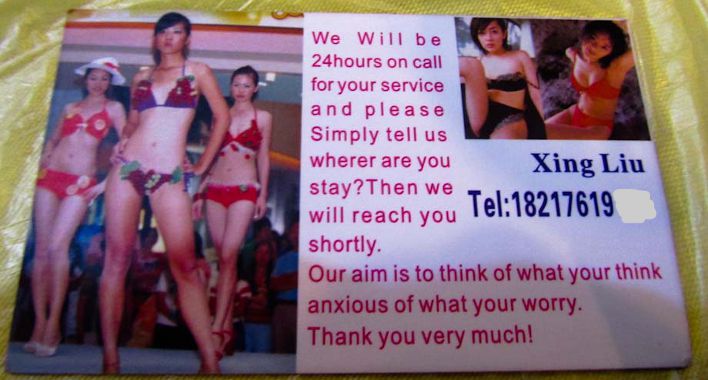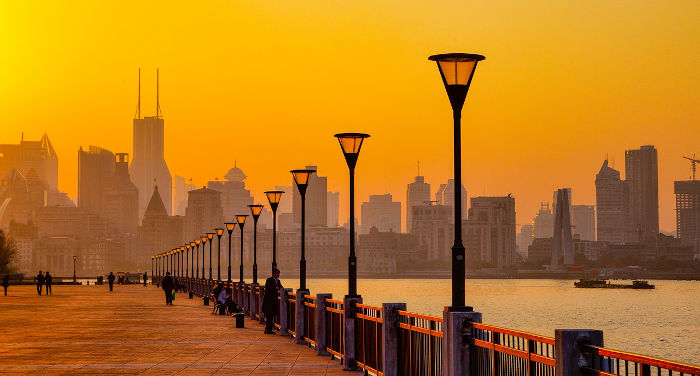
Not long after touching down in my U.S. hometown of Portland, Oregon, for the summer, I ended up in a conversation with a doctor from New York City who had recently moved to my beautiful Northwest city. I asked her how she was getting on in our unique little metropolis. She said, “Everyone is too nice here.” I thought, is it possible to be too nice?!?
She continued to explain, “Sometimes I want to walk my dog down the street, with my morning coffee, without having to say ‘hello’ to every person I pass. I mean, even the homeless guy that lives on my block says ‘have a good day’ every morning!” I thought, “Wow, our friendly American doctor has culture shock.”
One of the crazy things about coming from a country that is as spread out as the U.S. or China is how culturally diverse it is from one coast to another. That doesn’t stop the rest of the world from generalizing about the culture of the these two geographically large countries.
But the truth is if you spend time in a few different regions you realize that both of these countries have a multitude of different cultures, and that not all Americans are fat, and not all Chinese are rude.
This got me to wondering about the millions of Chinese living in the United Sates because I know from my four years living in China that expats definitely have strong feelings about their experience in China, so Chinese must have a similar experience living in the U.S., right? If only I could get access to a bunch of Chinese expats…
“Bing!” I just had a WeChat epiphany.
So, I got on WeChat’s “People Nearby” and started “friending” people. I ran into some Chinese Americans, a nice Vietnamese woman, but almost everyone else was Chinese. This was the first time in four years I was actually excited that WeChat hadn’t caught on in the United States.
I’m sure some of these people wondered if I was working a scam, or a stalker, but many people actually responded. I had some great “chats” and even made some new friends.
The Good…
The number one thing the Chinese expats liked about the U.S. was the air quality and general cleanliness of U.S. cities. Which, of course, is one of the biggest complaints from expats living in China.
In my adopted city of Shenzhen the air quality is actually pretty good compared to other first-tier Chinese cities. And even though I am happy that the Shenzhen city government is dedicated to a “greener” city, it pales in comparison to Portland and almost any U.S. city.
Speaking of green, let’s talk trash. No, not about Angelababy’s new Adidas Jade shoes, I mean the stuff that can’t seem to find its way into a trash bin in Chinese cities. Expats in China are constantly baffled by, one, the poor planning in waste management for huge cities, and two, the lack of respect Chinese people have for their own neighborhoods when they throw trash on the ground instead of a nearby trash can.
Expats are not the only ones who notice this. Many Chinese are asking the same question. In fact, recently a Chinese couple actually complemented my friend’s 6 year old boy on using the trash can! So you can imagine that that is one of the things that impressed our Chinese visitors here in the U.S., “[In China] some [Chinese] mainlanders are rude and not well behaved”.
Other things that came up as positives living in the U.S. were that it is “quiet”, “overall quality of life is better”, “the university education has more variety”, and “people are mostly polite and respectful”.
I have traveled all around the United States and I have seen some pretty dirty places. I have lived in places that are not so quiet. And I have run into more people than I care to count that are not so polite or respectful. That said, I have to agree that generally all of what my new Chinese friends say is true.
Coming from America we are taught from a young age that “freedom” and “citizens’ rights” are the most important things in society, and that American style democracy is the best way to ensure that the people are represented. So, I found it curious that only one Chinese expat mentioned this idea of freedom, “I will live here forever… I can do whatever I want… Here [I can] be more myself.”
The other topic that hardly came up was the relative freedom of the internet in the U.S. In China, the daily headache that is “The Great Firewall” is the number one issue for expats. And it, second only to craft beer, amazing wine, great coffee, and fabulous food, is the thing I enjoy most about being back in the States. However, the Chinese expats barely even mentioned it, even though they are all on FaceBook, which is blocked in China.
The Bad…
Of course not all that glitters is gold. It took a while for the Chinese expats to open up about the negatives of the United States. I got the sense that because I am American, they didn’t want to insult me, or their host country. However, some of them finally did.
Many of the people I interviewed said that the most “shocking” thing about America was “all homeless people.” Portland, unlike many American cities is extremely tolerant of the homeless, and so for a small city has a large percentage of homeless. However, I don’t believe that this was actually all that “shocking” since the Chinese news apparatus is constantly knocking the U.S. for its “homeless problem.”
In China, if you ask expats about the relative safety of living there they almost all will say that they feel “very safe.” One women told me, “I love how safe it feels! I haven’t thought about safety in ages… I can literally walk in the street in the middle of the night and not worry.” That’s not to say that there is no crime, or that you shouldn’t always be aware of your surroundings, but yes, all-in-all China feels safe.
Chinese in the United States apparently don’t feel the same sense of safety as the expats in China. Some of this stems, again, from the Chinese media, but again, there is some truth to that story, “…when we were in NYC my friend was robbed.”
Although crime in most American cities is at an all time low, there is the sense that if you walk down the wrong street things could go badly. Also, the Chinese expats, along with much of the international community, feel generally “unsafe” because of our gun control laws.
I asked all of the Chinese expats if they ever felt singled out because they are foreign. A Portland State University student said, “People can be mean,” and went on to say “People say American[s] does not like Asian people”. One women told me, “[Americans] don’t talk to us, because we don’t know English, not much.” Another student said, “Sometimes some people are rude just because you have different skin color or you have an accent.”
I had a University student from Detroit tell me, “…we went downtown…and a black guy yelling at us saying ‘fuck you all’. Of course I said the same to him…I [not] scare of him at all. You know I’m from Detroit”.
The irony is the western expats in China say the same thing on any given day.
I found the language barrier intriguing, because I believe that it is one of the main points of cultural misunderstandings. So, I asked whether they have many American friends. Almost all said “no” or “not many.” One student said he was in a running group and was kind of friends with some Americans.
I asked a student who has been in the U.S. for 3 years if she practices English with Americans. She said she doesn’t know any, so she just practices with her Chinese friends who speak English better than she.
In China I find that, with the exception of dating and marriage, many expats tend to hangout together in the same way the Chinese in the U.S. do. However, I happen to take Mandarin at a Chinese University, and many of the Chinese students there will bend over backwards to help you practice Chinese, especially if you reciprocate.
But China will always be home
I asked my new friends if they planned on staying in the U.S. or returning to China? Almost all said they planned on returning one day. One young women told me she wants to return, but her mother is insisting she stay in the U.S. She is not at all happy about this prospect.
When I asked why, she said, “[Portland, OR is] boring… like in China, people like to go out at night. When turn night [in Portland] people like to stay at home”. Clearly we are hanging out at different places in Portland!
Most of the Chinese expats see China as having greater job opportunities, “no matter what service or product you provide you can always find a huge number of customers.” And of course they miss family and friends, and speaking and thinking in their native tongue. “I video chat with [family] almost every day.”
I have a passion for food, so I asked if they missed their regional cuisine. The answer was a resounding, YES! I asked if they had found any good Chinese restaurants in the cities where they live, and they almost all said “no,” and I have to agree, American Chinese food is not really Chinese. Although I have been told by some Chinese American friends that big cities like L.A., Chicago, and New York have authentic Chinese food.
Besides air quality the only other deterrent that was mentioned about returning home was “too many people, it’s crazy to take a subway in Beijing or Shanghai.”
I wish my new friends luck while they are in the United States. Living abroad can be difficult, especially if you don’t befriend the natives. However, if you embrace where you live, and keep yourself from pining for home daily, then it can also be a grand adventure!
What’s your opinion?
Photo Credits: Photo by Blue Heron MacCormack




I came across your blog off of a random search about culture shock. I am a former Shenzhen expat too.
Being in China opened my eyes to some experiences that expats and immigrants may be (and probably are) facing in the U.S. It was a tough 2 years and it took a bit of readjusting once I left, but I’m grateful for the insight that I now have. Thank you for writing this blog post.
Thank you for the comment
Hi,
It was interesting to read your post on the differences and culture shock between the US and China.
I do agree with you that people do tend to stay with those who can speak the same language or share the same culture.
From my experience in Canada, many elementary/highschool Chinese/Koreans tended to hang out with kids who were from their own countries. The same does occur with adults in China. The few other foreigners that I have met tend to hang out together and are somewhat dismissive/discouraged by their situation in China. They tend to travel together and not do much outside of their circle.
It is hard to get over that level of comfort though. The only way that I overcame hanging out with people who were similar to me was to read/study and develop myself to adapt to the rest of the society. This can be faking/taking an interest in hockey/football in Canada, or watching and talking about Chinese movies/TV in order to socialize with other people. Many people refuse to do this though, and then the complacent comfort that you fit into can make you apathetic and discouraging of those outside your circle (in either country).
I haven’t really noticed many other differences between the Canada and China except for cleanliness; though my city in China is mostly well kept and clean. People in both countries are very polite and helpful.
I also haven’t been reduced in any freedoms since being in China. Coffee and most food/spices I enjoy is readily available either in the supermarket or cooked by myself. The internet access was not a problem for me for the first few months, but I began to use a proxy to get videos to show students about different countries from Youtube. Other than that, access to torrents, the BBC, Hotmail and numerous TV shows are all accessible without a VPN. I only use Skype as a method of social networking with people in Canada.
The only thing I miss are finding good books in English and Chinese. I still read online but it isn’t the same as having a hard copy.
Thank you Anton for sharing your experience.
The homeless in US do not seem to be that dangerous to me. I lived in Santa Cruz (CA) for 2 years. It’s a little town full of homeless. They sit there, asking for money, but they never bugged me at all.
In Italy they are generally more dangerous, they usually touch you, or speak louder asking for money.
I felt really scared when I walked in some blacks’ neighborhood in San Francisco (Tenderloin) or in New York (Harlem).
Anyway I think US is generally a safe and very nice place to live, but I admit I was scared too about the idea that everyone can walk around with a gun.
Hi Blue Heron
Read your post, made me smile and nod in approval on several occasions.I am based in Shenzhen, having worked globally over the past 18 years including a 4 year stay in the US I do agree with your concluding statement regarding embracing the environment you are in whilst not letting home sickness get the better of you, in doing so it can be very rewarding.
I am only 4 months into my Chinese adventure but experience and a little “savvy-ness” has taught me that patience is key especially here in China. The Chinese on the outside seem very unapproachable and maybe a little apprehensive in befriending foreign expats. It could be shyness and the reluctance to speak English but the one thing I have noticed in my short time here is once the communication barrier is broken the Chinese do become very likeable, easy going and extremely helpful….
Nice article….
Thanks
Best Regards
Tac
Hey Tac!
Thanks for reading, and taking the time to give feedback!
I really enjoy hearing about other people’s experiences abroad, and especially here in China. I completely agree that many Chinese people take time to open up, and that that investment of time can totally be worth it.
Keep embracing all life has to offer Tac! Thank you for supporting Sapore Di Cina.
Cheers!
Blue